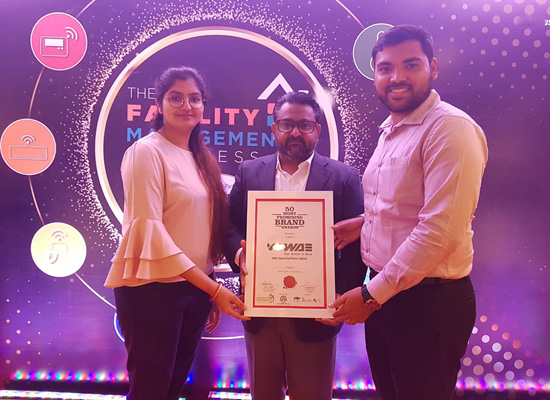



The Facilities Management Congress aims to facilitate future economic growth, sustainable human settlements, urban precinct, remains an unexplored space in facilities management.
The program in Mumbai was a part of the company’s plans to educate facility managers, discuss challenges and developments in the industry through such events.
The program in series, included panel discussions, liaison with government, flexible workplace, outsourcing and a range of other topics. The event was ideal for facility managers,
infrastructure managers, administration heads, security heads, human resource professionals and real estate and infrastructure companies.
The following table elucidates the impact we created by replacing thousands of plastic water bottles and replacing them with Drinking Water Stations. The direct impact of the removal of plastic water bottles is due to cutting down the CO2 emissions while manufacturing and incineration while the In-direct impact is due to the reduction in CO2 emissions in logistics and delivery to the point of use.
|
CARBON FOOT PRINT SAVINGS |
|||
|
A |
Direct Impact - Plastic bottles reduction |
||
|
|
Total number of bottles removed from circulation* |
22,245 |
|
|
|
Approximate weight of each 20-liter bottle |
0.72 |
kg |
|
|
Total weight of plastics removed |
16,016 |
kg |
|
|
CO2 while manufacturing & incineration / kg of plastic |
6 |
kg |
|
|
CO2 emission reduction |
96,098 |
kg CO2e |
|
B |
Indirect Impact - Estimated savings on fuel emissions |
||
|
|
|
|
|
|
|
1 trip takes approximately |
50 |
bottles |
|
|
To and fro trip saved at least |
890 |
monthly trips |
|
|
Total travel saved (assuming each trip of 10 km) |
106,776 |
km / annum |
|
|
Fuel consumed @ 20 kmpl |
5,339 |
liter of diesel |
|
|
CO2 emissions per liter |
2.68 |
kg / liter of diesel |
|
|
Net emission impact |
14,308 |
kg CO2e/annum |
|
|
Total Reduction of CO2 per month |
110,406 |
kg CO2e |
*Monthly consumption of 20-liter bottle
Apart from reducing the carbon footprints by at least 65 %, we also enable corporates to conserve water to a considerable amount which not only is a makes a better financial sense to them but also increases their contribution to sustainability and water-secure future.
Bottled water not only leads to plastic pollution but also results in water mining. To set up a big plant near a water abundant area, bottled water companies need to extract groundwater from a source at a rate more than the replenishment rate leading to persistent decline in the groundwater levels. The groundwater is taken out, bottled, and then shipped all over the country or world and this water never goes back. When the water table depletes beyond a critical limit, bottling companies just move from that area leaving a grave water scarcity.
Groundwater depletion impacts everyone and everything in the area who uses water: farmers, businesses, animals, ecosystems, tourism, and the regular guy getting his water from a well. Millions of gallons of water out of the ground leave the water table depleted uniformly and not just in that area because water table is connected across the landmass. Bottling Plants generate water scarcity and impact ecological balance.